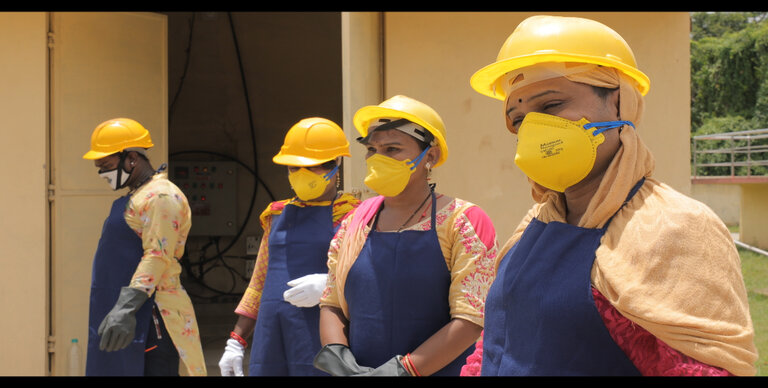Community led groups and enterprises can play a pivotal role in bridging demand -supply gap in the sanitation value chain and attaining SDG6
This #WorldToiletDay, learn more about how we can create an enabling ecosystem for these groups to scale into enterprises/small growing businesses across the sanitation value chain.
At Better Sanitation Collective, an Intellecap initiative, we bring together all the stakeholders through a sectoral engagement platform to understand the key pain points/challenges, design solutions, and forge partnerships to accelerate our journey towards achieving SDG 6.
The impact of ineffective sanitation in India is enormous, affecting the GDP, especially those at the base of the pyramid. It is estimated that India loses more than $106 billion of its GDP (> 5% of total) per year due to inadequate sanitation . Many government initiatives have triggered a growing momentum with greater public and private interest in the sanitation sector in India. This has provided growth opportunities to various upcoming start-ups across the sanitation value chain, focusing on providing innovative solutions.
The private sector, comprising of micro-enterprises, Small and Growing Businesses (SGBs), and in some cases large corporates have emerged as potential partners to address sanitation-related challenges, and concerted efforts to involve them shall also provide a huge boost to the nodal ministries in the Government of India in addressing the same.
In addition to the large, medium, and small growing businesses, the convergence of Government’s flagship programs like Swachh Bharat Mission (SBM) and National Urban Livelihood Mission (NULM), has provided an opportunity for Self Help Groups and other community-led collectives to emerge as second in line to the private sector in bridging the demand-supply gap and addressing the last-mile delivery of sanitation-related goods and services. While few successful groups and models have emerged from the state of Odisha, Andhra Pradesh, Telangana there are still many groups that have not been able to reach scale.
Some of these key areas that required interventions to enable these collectives to scale up as enterprises are:
• Capacity building and skill upgradation of these SHGs and collectives both on technical and business front including managing data and accounts to run the business is important.
• Access to capital is one of the biggest challenges faced by SHG’s, and financial products like credit guarantee mechanisms can be designed to enable access to low-cost debts. Additionally, it is also important to build sector awareness among financial institutions.
• Inclusive contracting mechanisms, since most of the contracts are issues by Urban Local Bodies, for operation and maintenance of FSTPs, community, and public toilets, etc., can be customized for SHGs to apply. Additionally, to make these contracts more economically viable, multiple projects can be bundled into one.
• Payment delays from the government can be addressed by including market building mechanisms like bridge financing, escrow accounts, etc., to help hedge such risk.
We believe that these interventions would form the cornerstone for developing a conducive ecosystem that will aid in accelerating the community collectives to participate across sanitation value chains thereby creating meaningful impact.
#BetterSanitationCollective
Image Courtesy – NFSSM Alliance








